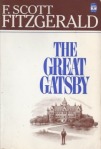Liane Moriarty – What Alice Forgot (Book Review)

Liane Moriarty – What Alice Forgot
I was a little worried when my new book club chose a chick-lit selection for the second month in a row, but it ended up being an interesting opportunity to consider what makes “chick-lit” good or bad. Liane Moriarty’s What Alice Forgot doesn’t always feel like it’s aimed at me, but it’s still a very good read.
At it’s heart, this book is about understanding people: Alice Love is a woman who bumps her head at the age of 39, and can’t remember anything from the past decade. In her mind, she’s a flighty 29-year-old woman pregnant with her first child and madly in love with her husband, while in reality she’s a sharp, efficient middle-aged soccer mom going through a bitter divorce. Alice sets out both to fix and figure out her life. The reader will be pretty interested, too, especially after the abrupt beginning that puts them right in Alice’s shoes.
I guess the common complaint about “chick-lit” is that it focuses on exaggerated clichés about domestic women, leaving everyone else out. In the past, I’ve argued that the problem with most romantic comedies and similar works is that the characters feel as much like unrealistic fantasies as the people in action movies. But while characters are expected to be secondary in an action movie, I want interesting, believable people in a story about relationships. I’m not completely sure if that was a fair criticism on my part, but if it’s true, What Alice Forgot is the answer I’ve been looking for. It’s protagonist will definitely appeal to the chick-lit audience, but the book is smart, funny, and features three-dimensional characters. Some early character-building is based on flashbacks and discussions that simply tell the reader what to think of everyone, which is an overused technique, but the book proceeds to reveal nuances that sometimes call those first impressions into question. Most main characters have to reconcile the person they used to be with the person they are now, and if it’s a little suspicious that everyone has changed so much, each individual person is believable and sympathetic.
Alice’s unfolding story is fascinating, with lots of uncertainty about if, or how, she’ll reconcile with her husband, bridge the gap with her sister, and keep up on her life. The book relies too much on “muscle memory” and scheduled events keeping Alice on track, but the scientific realism isn’t the point. The biggest problem is a couple distracting side stories: While Alice’s story is told by a third-person narrator inside her head, her sister Elisabeth gets frequent interludes with diary entries. Elisabeth’s story is as interesting as Alice’s, and makes a good counterpoint to it, but her writing voice is overly precious and seems too aware of the fact that she’s in a book. Worse, an elderly friend occasionally shows up in letters that tell a story about her falling in love. That whole plot is telegraphed in its first page, but is supposed to be funny and surprising. I’m sure that it was shoe-horned in by an editor who said that the book needed another romance in order to appeal to women, since it barely intersects with the main story at all.
I was disappointed by the ending, but the more I think about it, the more I realize that that is mainly due to the high standards set by the rest of the book. There are several sudden twists related to Alice learning important details of her past, and it jumps ahead to provide a couple different endings. The important thing is that the characters end up in places that feel fair to them, and the full details Alice learns do flesh out her backstory believably. But the strength of the book before that point is in how the characters evolve according to the surprising events. When the ending rushes through that to just show the surprise and then the eventual result, it feels like we’re missing the most important part of the experience.
What Alice Forgot is a moving, memorable book. Though I don’t feel any compulsion to run out now to buy more books featuring blurbs from Woman’s World and Marie Claire, I will be interested the next time my book club selects a title along these lines.
Grade: B
 A space station in the middle of nowhere is under attack from all sides, and needs you to defend it. It’s a pretty common video game premise, but the thing that makes
A space station in the middle of nowhere is under attack from all sides, and needs you to defend it. It’s a pretty common video game premise, but the thing that makes 




